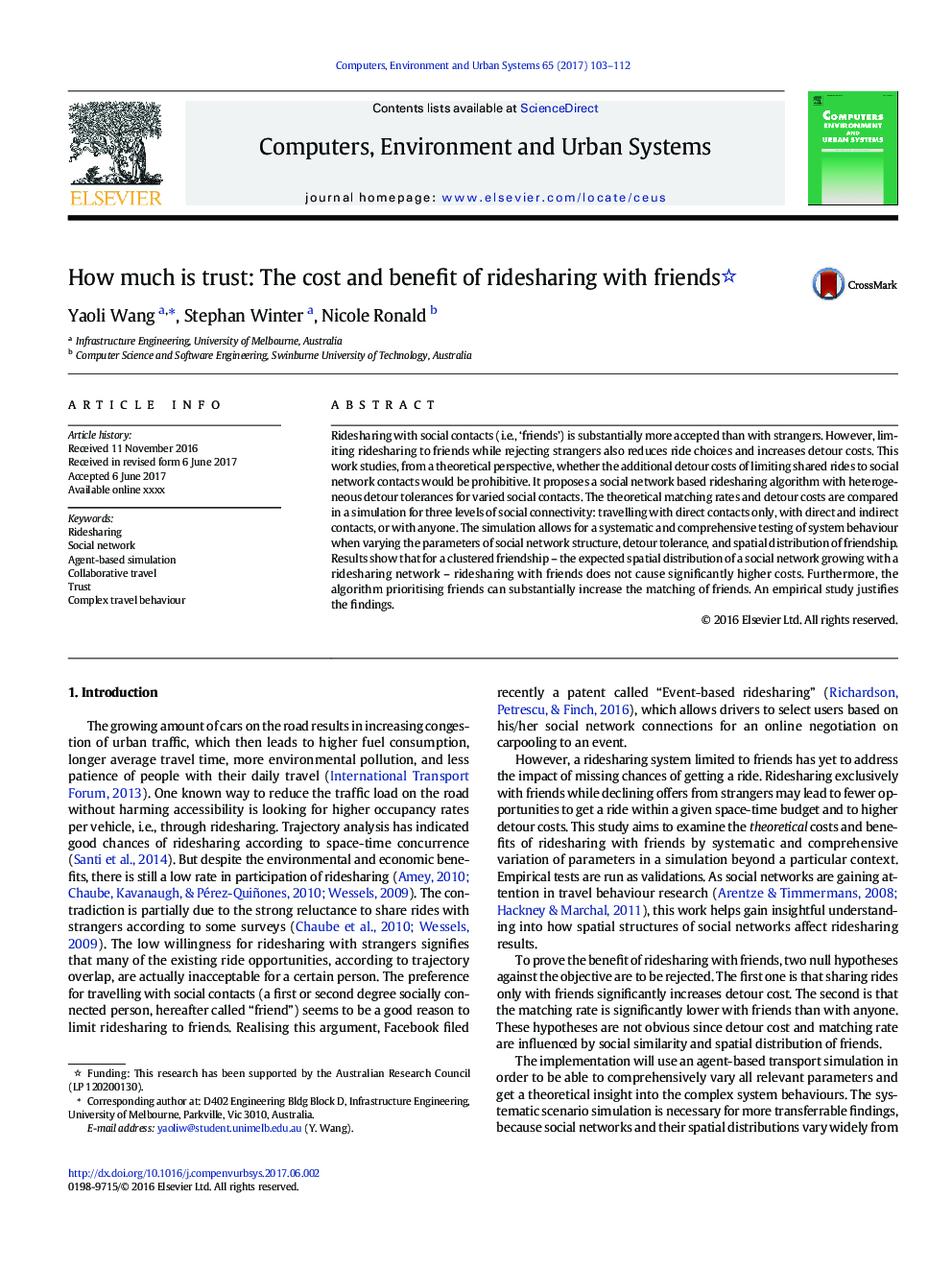| Article ID | Journal | Published Year | Pages | File Type |
|---|---|---|---|---|
| 4965188 | Computers, Environment and Urban Systems | 2017 | 10 Pages |
Abstract
Ridesharing with social contacts (i.e., 'friends') is substantially more accepted than with strangers. However, limiting ridesharing to friends while rejecting strangers also reduces ride choices and increases detour costs. This work studies, from a theoretical perspective, whether the additional detour costs of limiting shared rides to social network contacts would be prohibitive. It proposes a social network based ridesharing algorithm with heterogeneous detour tolerances for varied social contacts. The theoretical matching rates and detour costs are compared in a simulation for three levels of social connectivity: travelling with direct contacts only, with direct and indirect contacts, or with anyone. The simulation allows for a systematic and comprehensive testing of system behaviour when varying the parameters of social network structure, detour tolerance, and spatial distribution of friendship. Results show that for a clustered friendship - the expected spatial distribution of a social network growing with a ridesharing network - ridesharing with friends does not cause significantly higher costs. Furthermore, the algorithm prioritising friends can substantially increase the matching of friends. An empirical study justifies the findings.
Related Topics
Physical Sciences and Engineering
Computer Science
Computer Science Applications
Authors
Yaoli Wang, Stephan Winter, Nicole Ronald,
